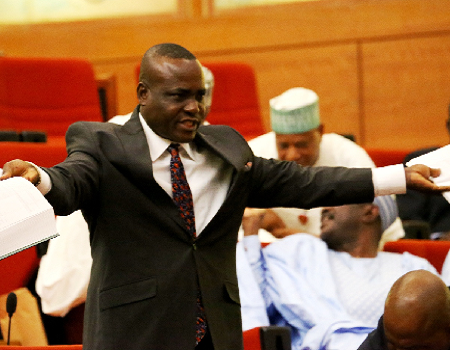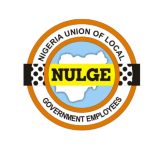Former presidential aide, Senator Ita Enang, has advised the National Assembly against abusing its power of oversight and investigation by delving into matters of private companies or organisations the Legislature does not budget for statutorily.
Enang, who served as Senior Special Assistant (SSA) on National Assembly Matters (Senate) to the late President Muhammadu Buhari, challenged the media to rise to the call of duty by pointing out such overstepping of boundaries whenever it happens.
He raised the issue on Wednesday while speaking at a one-day workshop organised by the Senate Press Corps on “Parliamentary reporting: Issues, challenges and responsibilities.”
Enang, who also previously served three terms at the House of Representatives and chaired both the Senate Committee on Rules/Business and House of Representatives Committee on Rules/Business, spoke from a position of experience.
ALSO READ: Ondo govt inaugurates steering committee for agricultural investments
“There is the current trend where the Legislature, through her committees, has exceeded her powers in many respects in matters of oversight and has descended into the Arena of the Executive seeking to encroach on the functions of the Executive, going beyond oversight to exercise of powers beyond Constitutional limitations.
“And in many cases go into matters of private companies and citizens beyond her remit,” he said.
The former senator argued that while the National Assembly might use Sections 88/89 of the 1999 Constitution to back up its actions, the powers conferred on it by the constitution did not include private companies and individuals.
Giving the example of DHL International Nigeria Ltd v. Senate of the Federal Republic of Nigeria (2018), Enang reminded the session that Justice Ayokunle Faji held that private firms did not fall within the scope of Sections 88 and 89 of the 1999 Constitution.
He also recalled the Court of Appeal judgment in NECA v. Attorney General of the Federation, where Justice J.H. Sankey decided that legislative oversight covered only government agencies budgeted for by the National Assembly.
“It is an abuse of power when committees descend into the arena of the executive or the private sector,” he added.
Speaking further, Enang stated, “To underscore the irrationality of the current situation, one may ask: Should companies stop engaging with the Ministries, Departments, and Agencies of Government, and instead deal directly with lawmakers?
“If the answer is in the affirmative, then it would logically follow that MDAs should be scrapped altogether, since their existence would be redundant? Such an outcome would, however, clearly be untenable in a constitutional democracy.”
On reporting the parliament, Enang pointed out that journalists must first understand that it is a very special beat, which demands the professional to go the extra mile while on it.
“This is not an ordinary beat”, he stated, noting , “You must read the bills, know the Constitution, and understand parliamentary procedure. Otherwise, you are simply chasing controversies rather than reporting substance.”
He said much as certain issues that might make headlines crop up frequently during debates on the floor, the parliamentary reporter must not lose sight of the main issues of the debates.
He equally called on lawmakers themselves to be adequately prepared for the debates and the subjects of bills before them so that journalists will represent their views appropriately.
“I have seen situations where a member comes to debate an amendment bill without even looking at the principal Act being amended. If you don’t understand the bill, how can journalists report it?” Enang asked.
Other speakers at the session included Senate Spokesman, Senator Yemi Adaramodu, who spoke on the power of the media in bringing political, economic and social change to the country; Minister of State for Agriculture and Food Security, Senator Aliyu Abdulahi, who advised journalists to sharpen their knowledge by reading widely; and the Director-General of the National Institute for Legislative and Democratic Studies (NILDS), Professor Abubakar Sulaiman, urged the media not to underestimate the importance of parliamentary reporting to the development of democracy in Nigeria.
WATCH TOP VIDEOS FROM NIGERIAN TRIBUNE TV
- Let’s Talk About SELF-AWARENESS
- Is Your Confidence Mistaken for Pride? Let’s talk about it
- Is Etiquette About Perfection…Or Just Not Being Rude?
- Top Psychologist Reveal 3 Signs You’re Struggling With Imposter Syndrome
- Do You Pick Up Work-Related Calls at Midnight or Never? Let’s Talk About Boundaries






